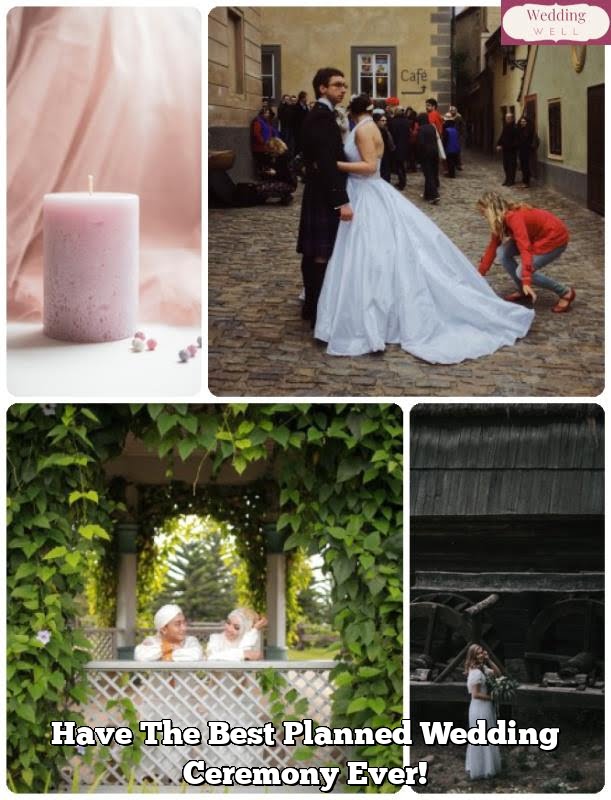Performing a wedding ceremony is a crucial and cherished role that holds great significance for both the couple and their loved ones. An officiant plays a pivotal part in creating a memorable and meaningful event as they guide the couple through their commitment to each other.
Therefore, it is essential to understand the importance of officiating a wedding ceremony with utmost professionalism and care. In this article, we will explore the key aspects of how to perform a wedding ceremony, from legal requirements to creating a personalized ceremony, understanding the structure, writing the script, conducting rehearsals, officiating the ceremony itself, and handling post-ceremony responsibilities.
The role of an officiant in a wedding ceremony goes beyond simply leading the proceedings; they are also responsible for setting the tone and atmosphere of the event. As such, having a well-prepared and professional officiant can significantly enhance the overall experience for everyone involved. Whether it’s a religious or secular ceremony, being well-versed in performing weddings will ensure that the couple’s special day is executed flawlessly.
Furthermore, understanding how to navigate through legal requirements and paperwork is vital when undertaking the responsibility of marrying two individuals. Obtaining necessary licenses and ensuring compliance with local regulations are essential steps in becoming an officiant. Additionally, working closely with couples to create a personalized ceremony that reflects their unique love story and values is crucial in delivering an unforgettable experience for all in attendance.
Legal Requirements and Paperwork
Before you can officiate a wedding ceremony, it is essential to understand the legal requirements and paperwork involved. One of the most important steps is to check the marriage laws in the specific state or country where the wedding will take place. Requirements for officiants vary widely, so it is crucial to ensure that you are properly authorized to perform the ceremony.
In many cases, officiants are required to register with a government office or religious institution and obtain a license or authorization to legally marry couples. Some states may also require additional documentation such as a letter of good standing or an ordination certificate. It is important to research and complete all necessary paperwork well in advance of the wedding date to avoid any legal issues.
Furthermore, it is essential to communicate with the couple about any specific legal requirements and deadlines for submitting marriage license applications. As an officiant, you may be responsible for guiding the couple through the process of obtaining their marriage license, so being well-informed about these procedures is crucial in ensuring that everything runs smoothly on their special day.
Understanding and fulfilling the legal requirements for officiating a wedding ceremony is a vital aspect of your role as an officiant. By doing so, you not only ensure that you are compliant with local laws but also provide peace of mind for the couple and their families. Additionally, being knowledgeable about these legal aspects can contribute to your professional image as an officiant.
| Legal Requirements | Paperwork |
|---|---|
| Research marriage laws in specific location | Obtain necessary licenses and authorizations |
| Communicate with couple about legal requirements | Assist with marriage license applications |
Remember: Always make sure to double-check with local authorities or relevant organizations to ensure that you have met all legal requirements before performing a wedding ceremony.
Creating a Personalized Ceremony
Tips for Collaboration
When it comes to officiating a wedding ceremony, one of the most important aspects is working with the couple to create a personalized and meaningful experience. This involves spending time getting to know the couple and understanding their values, beliefs, and vision for their special day. By having open and collaborative discussions, you can tailor the ceremony to reflect their unique love story and incorporate elements that are meaningful to them.
Incorporating Meaningful Elements
There are countless ways to personalize a wedding ceremony, from including readings and poetry that hold significance to the couple, to incorporating cultural or religious traditions that are meaningful to them. Other personal touches can include writing personal vows, involving family members in special roles, or even integrating symbolic gestures such as unity ceremonies or rituals. By incorporating these elements, you can create a ceremony that truly reflects the personalities and relationship of the couple.
Flexibility and Communication
It’s important for officiants to be flexible and open-minded when collaborating with couples on their ceremony. Being able to adapt to different ideas and visions while also providing guidance on what works best in a wedding setting is crucial.
Clear communication is also vital throughout this process, ensuring that everyone involved is on the same page regarding the structure and content of the ceremony. By maintaining open communication and being receptive to creative input from the couple, you can create a personalized ceremony that will be memorable for everyone involved.
By following these tips on how to perform a wedding ceremony by collaborating with couples in creating their personalized ceremony script, you can help ensure that their special day is an unforgettable celebration of love.
Understanding the Ceremony Structure
One of the key aspects of being a successful wedding officiant is understanding the structure of a wedding ceremony. Before learning how to perform a wedding ceremony, it is essential to grasp the typical sequence of events and the significance of each part. A standard wedding ceremony can be broken down into different sections, each serving a specific purpose.
The ceremony usually begins with the processional, where the wedding party enters and takes their places. This is followed by an opening address or welcome message from the officiant, setting the tone for the rest of the ceremony. Next comes readings or musical interludes, which can be personalized to reflect the couple’s love story or incorporate meaningful passages or songs.
Afterwards, there may be rituals such as a unity candle lighting or a sand ceremony that symbolize the joining of two lives. The heart of the ceremony is often composed of vows and ring exchanges, where the couple publicly expresses their commitment to each other. Finally, there is usually a pronouncement of marriage by the officiant and a closing statement before the recessional marks its conclusion.
Understanding this structure allows an officiant to guide couples in customizing their ceremony while ensuring that all essential elements are included.
It’s important for officiants to work closely with couples to craft ceremonies that reflect their beliefs and personalities while adhering to legal requirements and traditional customs. This involves being flexible enough to accommodate various cultural practices and religious traditions while maintaining a solemn and respectful atmosphere throughout the proceedings. By intimately understanding these elements, an officiant can conduct ceremonies that are meaningful and memorable for everyone involved.
| Aspect | Importance |
|---|---|
| Understanding Ceremony Structure | Guiding couples in customizing their ceremonies |
| Flexibility | Accommodating various cultural practices and religious traditions |
| Maintaining Respectful Atmosphere | Conducting ceremonies that are meaningful and memorable |
Writing the Ceremony Script
When it comes to writing the ceremony script for a wedding, it’s important to remember that this is one of the most crucial aspects of performing a wedding ceremony. The script sets the tone for the entire event and should reflect the couple’s love, values, and personalities. Here are some tips on how to write an engaging and thoughtful ceremony script:
- Consider the Couple: Start by getting to know the couple and their story. Understand what makes their relationship unique and what they want to convey during their ceremony. Incorporate personal anecdotes or special moments that highlight their journey together.
- Structure the Script: A well-written ceremony script typically includes an opening, readings or vows, exchange of rings, pronouncement of marriage, and closing remarks. Make sure to flow smoothly from one section to another while keeping the audience engaged.
- Inclusion of Cultural or Religious Elements: If the couple desires, incorporate cultural or religious elements into the ceremony script. This could include traditional rituals, prayers, or customs that hold significance for them.
- Reflect on Tone and Language: Consider the overall tone of the ceremony-whether it’s lighthearted and fun or more solemn and spiritual. The language used in the script should reflect this tone while being respectful and inclusive.
- Seek Feedback: Once you have drafted a ceremony script, it can be beneficial to share it with the couple for feedback. Collaboration with them ensures that their wishes are accurately represented in the script.
Ultimately, creating a personalized and meaningful ceremony script involves communication with the couple and attention to detail in order to capture their love story authentically.
Rehearsal and Coordination
Conducting a Successful Wedding Ceremony Rehearsal
When it comes to performing a wedding ceremony, the rehearsal is a crucial step in ensuring that everything runs smoothly on the big day. As the officiant, it is important to take charge of the rehearsal and guide the couple, wedding party, and any other participants through the ceremony proceedings. It’s essential to communicate clearly and provide instructions for each part of the ceremony, including entrances, exits, and any specific rituals or traditions that will be included.
During the rehearsal, make sure to address any potential issues or concerns that may arise. This could include coordinating with the couple and their wedding planner to ensure that all necessary logistics are in place, such as seating arrangements, sound equipment, and any props or ceremonial items. Additionally, use this time to finalize cues for music or readings and make adjustments as needed.
Coordinating With Other Wedding Vendors
As the officiant, collaborating with other wedding vendors is key to ensuring a seamless ceremony. This involves communication with photographers, videographers, musicians, venue staff, and wedding coordinators to coordinate timing and execution of the ceremony. Clear communication and teamwork among all vendors involved will help create a cohesive and well-coordinated event.
It’s important to establish a good working relationship with these professionals beforehand so that everyone understands their roles and responsibilities during the ceremony. Maintaining open lines of communication throughout the planning process will help ensure that all parties involved are on the same page when it comes time for the wedding day.
Ensuring Wedding Party Coordination
In addition to working with other vendors, it’s also important for the officiant to coordinate with the members of the wedding party. This includes providing guidance on their roles during the ceremony, such as walking down aisles or standing in specific positions. Being organized and proactive in communicating these details can help alleviate stress for everyone involved and contribute to a more polished presentation on the day of the wedding.
By taking careful steps in rehearsing and coordinating all aspects of the wedding ceremony, an officiant can play an integral role in ensuring that everything goes according to plan. Clear communication and attention to detail during this phase will set the stage for a successful celebration of love and commitment between two individuals.
Officiating the Ceremony
As an officiant, the wedding ceremony is the most important part of your role. It is your responsibility to lead the ceremony with confidence and professionalism, ensuring a memorable and smooth experience for the couple and their guests. Here are some guidelines for officiating the ceremony:
- Prepare and Practice: Before the big day, it is essential to thoroughly prepare and practice delivering the ceremony script. Familiarize yourself with the order of events, timing, and any specific traditions or rituals that will be included. Rehearsing your delivery will help you feel more comfortable and confident when it’s time to perform the ceremony.
- Setting the Tone: As an officiant, you have the power to set the tone for the entire wedding ceremony. Consider the couple’s personality and style when determining how formal or casual the tone should be. Remember to speak clearly and confidently, projecting your voice so that all guests can hear you.
- Handling Unexpected Situations: Despite careful planning, unexpected situations may arise during the ceremony. Whether it’s a technical issue with audio equipment or a guest who becomes disruptive, it’s important to stay calm and composed. Have a plan in place for potential disruptions or distractions, such as politely addressing them or finding alternative solutions.
- Engaging with Guests: Throughout the ceremony, engage with the couple and their guests in a warm and inclusive manner. Offer genuine well-wishes and positivity as you guide everyone through this special moment. Your words can help create an intimate atmosphere that resonates with everyone present.
Remember that every wedding ceremony is unique, so be adaptable and ready to handle whatever comes your way with grace and poise.
After the Ceremony
As an officiant, your role in a wedding does not end with the conclusion of the ceremony. After the ceremony, there are several post-ceremony responsibilities that you must fulfill to ensure that the marriage process is completed seamlessly. One of the most important tasks after the ceremony is completing and filing the marriage license. This involves making sure all necessary signatures are obtained and that the license is filed with the appropriate government office within the specified timeframe.
Additionally, it is essential to interact with the couple and their guests after the ceremony. This could involve offering congratulations, taking photos, or simply being available for any questions or concerns they may have. Providing guidance for the next steps in the marriage process can also be part of your post-ceremony responsibilities, especially if the couple has questions about changing their last names, obtaining certified copies of their marriage certificate, or updating their marital status with various institutions.
Ultimately, being an officiant goes beyond just delivering a well-prepared and professional wedding ceremony. It entails providing support to the couple before and after their special day.
By fulfilling these post-ceremony responsibilities with care and attention to detail, you can ensure that your role as an officiant contributes to a memorable and successful wedding experience for the newlyweds and their loved ones. So remember that how you perform a wedding ceremony includes everything leading up to it as well as what comes after it.
Frequently Asked Questions
What Do You Say When Performing a Wedding Ceremony?
When performing a wedding ceremony, the officiant typically starts with a welcome message to the guests and then speaks about the significance of marriage. They may also share some personal thoughts or advice for the couple before moving on to the vows and ring exchange.
How Does the Officiant Start the Wedding?
The officiant usually starts the wedding by welcoming everyone and thanking them for being there to support the couple. They may also offer a brief introduction about the significance of marriage and love before inviting the couple to share their vows.
What Is Required to Officiate a Wedding in South Carolina?
In South Carolina, to officiate a wedding, one must be either a minister, rabbi, or authorized representative of any religious group. In addition, judges, notaries public, and other officials authorized by their state can also perform weddings after approval. Valid ordination credentials might also be required if not affiliated with any religious organization.

Welcome to my blog about home and family. This blog is a place where I will share my thoughts, ideas, and experiences related to these important topics. I am a stay-at-home mom with two young children. I hope you enjoy reading it! and may find some helpful tips and ideas that will make your home and family life even better!





